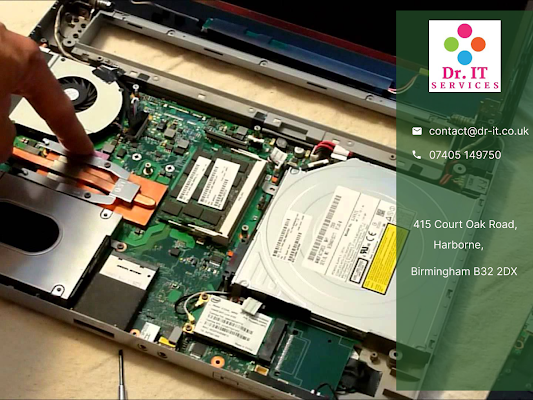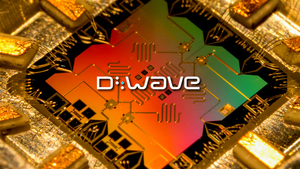
Computers have become an integral part of our lives in today’s digital age. Whether you use your computer for work or entertainment, keeping it running smoothly to ensure optimal performance is important. Preventative maintenance is crucial in keeping your PC running smoothly, and in this blog, we’ll share some tips and tricks to help you maintain your computer’s health. From regular cleaning to software updates, we’ll cover everything you need to know to keep your PC running at its best. So, whether you’re a computer novice or a tech-savvy user, read on to discover how to keep your PC running smoothly with our preventative maintenance tips and tricks.
Why Regular Maintenance is Crucial for Your PC’s Longevity
Regular maintenance is crucial for your PC’s longevity because it helps prevent small issues from becoming big problems that can damage your computer beyond repair. Like any other machine, your computer must be properly maintained to function at its best and last a long time. Regular maintenance can improve your PC’s performance. Over time, your computer’s hard drive can become cluttered with unused files and programs, slowing it down. Regular maintenance, such as cleaning your hard drive, can help improve your computer’s speed.
Regular maintenance can also help keep your PC secure. Cyber threats such as viruses and malware can wreak havoc on your computer if you don’t have proper protection or haven’t updated your software. Regular maintenance, such as installing updates and running virus scans, can help protect your computer from these threats.
Regular maintenance can help extend your PC’s lifespan. By keeping your computer running smoothly, you can reduce the wear and tear on your hardware and prevent damage from occurring. This can help your computer last longer and save you money in the long run.
How to Speed Up Your PC: Maintenance Tips for Optimal Performance
A slow PC can be frustrating, especially when trying to get work done or enjoy leisure time on your computer. Luckily, you can follow several maintenance tips to speed up your PC and improve its performance. Here are some of the most effective tips:
- Clean up your hard drive: Your hard drive can become cluttered with unnecessary files and programs over time, slowing down your computer. Use a disk cleanup tool to delete unused files, such as temporary and internet history, and uninstall programs you no longer use.
- Defragmenting your hard drive: Defragmenting your hard drive can help speed up your PC by organizing your files and making them easier to access. This can improve your computer’s performance, especially when accessing large files.
- Disable unnecessary startup programs: Some programs automatically launch when you start up your computer, which can slow down your PC. Disable unnecessary startup programs to free up resources and speed up your computer’s boot time.
- Update your software: Keeping your software up to date can improve your computer’s performance and security. Software updates often include bug fixes and performance improvements that can speed up your PC.
- Run virus and malware scans: Viruses and malware can slow down your PC and put your security at risk. Run virus and malware scans regularly to keep your computer clean and running smoothly.
- Increase your RAM: If your computer is running slow despite these maintenance tips, you may need to upgrade your RAM. Adding more RAM can help your computer run more programs simultaneously and improve overall performance.
- Check for hardware issues: If your computer is still running slow, a hardware issue may need to be addressed. Check for hardware issues, such as a failing hard drive or overheating components, and replace or repair them as required.
Troubleshooting Common PC Issues: How to Fix Your Computer’s Problems Before They Get Worse
PCs are complex machines, and it’s not uncommon to experience issues with them occasionally. Many things can go wrong with a computer, from software to hardware issues. Here are some tips for troubleshooting common PC issues and fixing them before they get worse:
- Slow performance: If your computer is running slow, try the maintenance tips mentioned above, such as cleaning up your hard drive and running virus scans. If these don’t work, you may need to upgrade your RAM or consider replacing your hard drive.
- Blue screen of death: The blue screen of death (BSOD) is a common PC issue caused by various things, including hardware failures, driver issues, and software problems. If you experience a BSOD, try restarting your computer and running a virus scan. If the issue persists, you may need to update your drivers or perform a system restore.
- Internet connectivity issues: If you’re having trouble connecting to the internet, try resetting your modem and router. If that doesn’t work, try connecting to a different Wi-Fi network or using an Ethernet cable. You may also need to update your network drivers.
- Software issues: If you’re having trouble with a particular program or app, try uninstalling and reinstalling it. You may also need to update the software or check for compatibility issues with your operating system.
- Hardware issues: If your computer is experiencing hardware issues, such as a failing hard drive or overheating components, you may need professional help. Consider taking your computer to a repair shop or contacting the manufacturer.
- Power issues: If your computer isn’t turning on or is experiencing power issues, try unplugging it and plugging it back in. If that doesn’t work, you may need to replace your power supply or battery.
In conclusion, troubleshooting common PC issues can be challenging, but addressing them is important before they get worse. Following these tips, you can diagnose and fix many PC issues and keep your computer running smoothly. If you’re unsure how to address a particular issue, don’t hesitate to seek professional help.
Benefits of Hiring A Professional Computer Technician to clean your PC or Laptop
When cleaning and maintaining your PC or laptop, trying to do it yourself can be tempting. However, hiring a professional computer technician to clean your computer can offer several benefits. Here are some of the main benefits of hiring a professional to clean your PC or laptop:
- Proper cleaning: An experienced computer technician has the tools and knowledge to clean your computer properly, including removing dust and debris from hard-to-reach places. They can also safely clean your computer’s components without causing damage.
- Improved performance: A clean computer runs more efficiently and performs better. By removing dust and debris, a professional computer technician can help improve your computer’s performance and prevent overheating.
- Longevity: Regular cleaning and maintenance can help extend the life of your computer. By hiring a professional computer technician to clean your computer, you can help ensure it lasts as long as possible.
- Professional diagnosis: Besides cleaning your computer, an experienced computer technician can diagnose any issues affecting your computer’s performance. They can identify and address software problems, hardware failures, and security threats.
- Convenient: Hiring a professional computer technician to clean your computer is a convenient way to maintain it properly. You don’t have to worry about finding the time or tools to clean your computer.
Preparing your PC or Laptop for Professional Cleaning
Preparing your PC or laptop for professional cleaning is important to ensure the cleaning process goes smoothly and effectively. Here are some tips on how to prepare your computer for professional cleaning:
- Back up your data: Before handing over your computer to an experienced technician for cleaning, it’s important to back up all your important data, such as documents, photos, and videos. This will ensure you don’t lose any important files if something goes wrong during the cleaning process.
- Remove any personal items: Make sure to remove any personal items, such as stickers or decorations, from the exterior of your computer. This will allow the technician to thoroughly clean your computer without causing any damage or interference.
- Unplug all peripherals: Unplug all peripherals, such as your mouse, keyboard, and monitor, from your computer. This will allow the technician to clean your computer without obstructions and prevent damage to the peripherals.
- Shut down your computer: Shut it completely before handing it over for cleaning. This will ensure that the technician can safely clean the computer without causing any damage to the operating system.
- Write down any issues: If you’re experiencing problems with your computer, such as slow performance or overheating, write them down and let the technician know. This will help them diagnose and address any issues during the cleaning process.
- Passwords and security: If your computer is password-protected or has any security measures, provide the technician with the necessary information to access your computer. This will allow them to clean and maintain your computer effectively without any issues.
Conclusion
In conclusion, keeping your PC running smoothly is all about preventative maintenance. By following the tips and tricks we’ve shared in this blog post, you can help extend the life of your computer and ensure that it performs at its best. From regular cleaning to software updates, these simple steps can go a long way in maintaining your computer’s health and preventing issues down the line. So, whether you want to improve your computer’s performance or keep it running smoothly, incorporate these preventative maintenance tips into your routine. And if you ever encounter any issues or need professional help, don’t hesitate to contact Dr. IT Services – they’re here to help keep your computer running smoothly for years to come.
Media Contact
Company Name: Dr IT Services - Computer Repair, Laptop Repair & Data Recovery
Email: Send Email
Phone: +447405149750
Address:415 Court Oak Rd, Harborne
City: Birmingham B32 2DX
State: England
Country: United Kingdom
Website: https://dr-it.co.uk/





